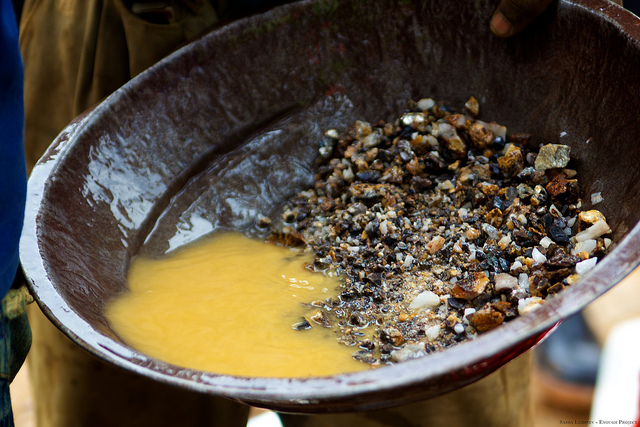
Two mineral trading companies have had their activities suspended by the Congolese government for violating a new Congolese law that requires companies to make sure they are only purchasing traceable, clean minerals. Chinese-owned companies TTT Mining (exporting as CMM) and Huaying Trading Company, based in eastern Congo’s North Kivu province, were purchasing minerals without carrying out supply chain due diligence. This failure to abide by national law was uncovered by the U.N. Group of Experts on DRC that reported these two traders to have made purchases that financed armed groups and criminal networks within the Congolese national army.
This move by the Congolese government follows a mandate that was issued last September to require that all mining and mineral trading companies exercise due diligence that is in line with OECD’s international standards, making certain that purchases are not supporting illegal armed groups. The directive was later incorporated into national law in February 2012. These steps follow from the Dodd-Frank legislation on conflict minerals passed in July 2010.
This step to enforce due diligence laws exhibits significant strides that the Congolese government is taking to ensure a responsible and clean mineral trade. It sends a signal to companies interested in purchasing minerals from Congo or the region that they have to adhere to certain rules of transparency and due diligence. Responding to the news, Global Witness commended the government’s move and called for them to publish the findings of a further investigation into the trading practices as soon as possible.
Throughout April and May, eastern Congo has been experiencing renewed violence after warlord Bosco Ntaganda mutinied from the Congolese army, taking with him several hundred soldiers from the former CNDP rebel militia group. Funds and arms derived from years of minerals exploitation by Ntaganda and his network has largely bolstered this latest insurgency. The Congolese government’s efforts to implement and enforce due diligence laws are crucial in helping to break Congo’s cycle of violence and eliminate illegal involvement in the minerals trade on the part of armed groups.
The Enough Project welcomes this decision by the Congolese government and encourages ongoing efforts to trace and certify Congo’s minerals trade. Going forward, Congo should reform its mine validation initiative to be more comprehensive, and the U.S. should support a monitoring mechanism to ensure that mines and exporters are fully clean.
Photo: Tin ore in eastern Congo (Enough / Sasha Lezhnev)

